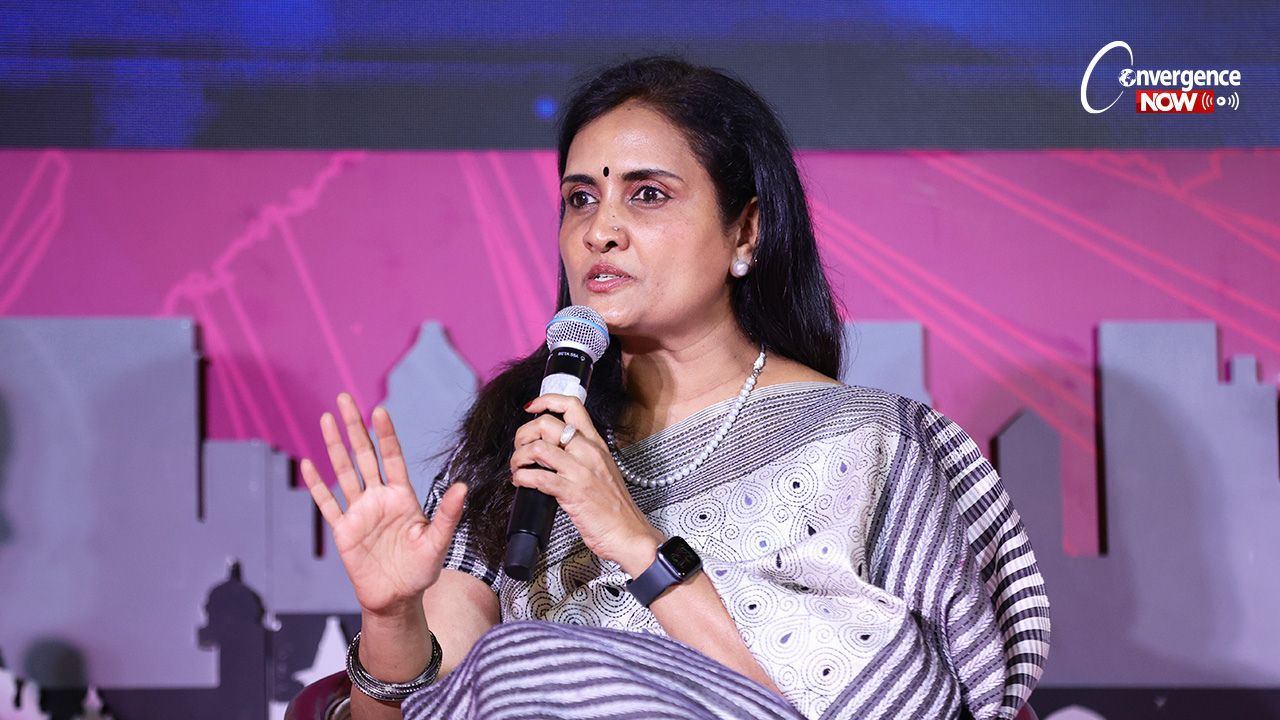In a world where technology evolves at breakneck speed, few voices resonate with both personal conviction and national relevance like Jaya Jagadish, Country Head and Senior VP of Silicon Design Engineering at AMD India. At the recent 32nd Convergence India Expo 2025, Jagadish offered a deeply human perspective on three of the most critical pillars shaping India’s tech landscape: gender equity, the rise of the semiconductor industry, and the disruptive power of artificial intelligence.
As a woman in a field historically dominated by men, Jagadish’s journey was marked by early challenges. “There were meetings initially when I would try to make a comment, and it was only trying that happened,” she recalled with candour. Her story isn’t just about breaking into the room, but about reshaping the dynamics within it. “Without passion, I don’t think I could’ve survived the challenges,” she emphasized, underscoring that a genuine love for technology—not rebellion—fueled her persistence.
That passion found fertile ground in India. Despite spending years in the U.S., Jagadish felt an unshakable pull back to her roots. “I always felt India is my place. I want to be here,” she said. AMD’s India design centre has since grown into a global powerhouse, developing cutting-edge CPU technology and contributing significantly to AMD’s R&D efforts.
This growth mirrors a broader national shift. Once a quiet player, India is now a rising force in the global semiconductor narrative. “Today, we have discussions in family gatherings about the supply chain!” Jagadish laughed, reflecting on how semiconductors have become a mainstream topic. While India has long led in design, it is now investing heavily in manufacturing and R&D—critical steps in securing its place in a geopolitically sensitive, innovation-driven sector.
The conversation inevitably turned to artificial intelligence, a domain reshaping the future of work. “AI is here. It’s not coming—it’s already arrived,” she said. Far from sounding alarmist, her outlook is grounded and hopeful. She believes AI won’t necessarily take away jobs, but will shift skillsets, pushing professionals to upskill and specialise. It’s a call for adaptability, not fear.
Yet, Jagadish is acutely aware that the future of tech isn’t just about silicon and software—it’s also about people. She pointed to the persistent “leaky pipeline” in women’s leadership, where representation sharply drops beyond entry-level roles. The reasons are complex—life stage challenges, social expectations, and internalised guilt. “Without domestic equity, there can be no equality at work,” she asserted.
Her solution? Normalise support systems, create policies that benefit all genders and encourage women to dream long-term. “A career spans 40 years. Don’t give up your aspirations for short-term challenges,” she advised.
Convergence India, 2025
The 32nd Convergence India expo, held at Bharat Mandapam in New Delhi, emerged as a pivotal platform for shaping India's tech-driven future. This event showcased a vast array of networking opportunities and hosted over 45 conference sessions featuring 220 speakers from both the public and private sectors. It brought together industry leaders, innovators, and government representatives to discuss emerging technologies and market trends.




